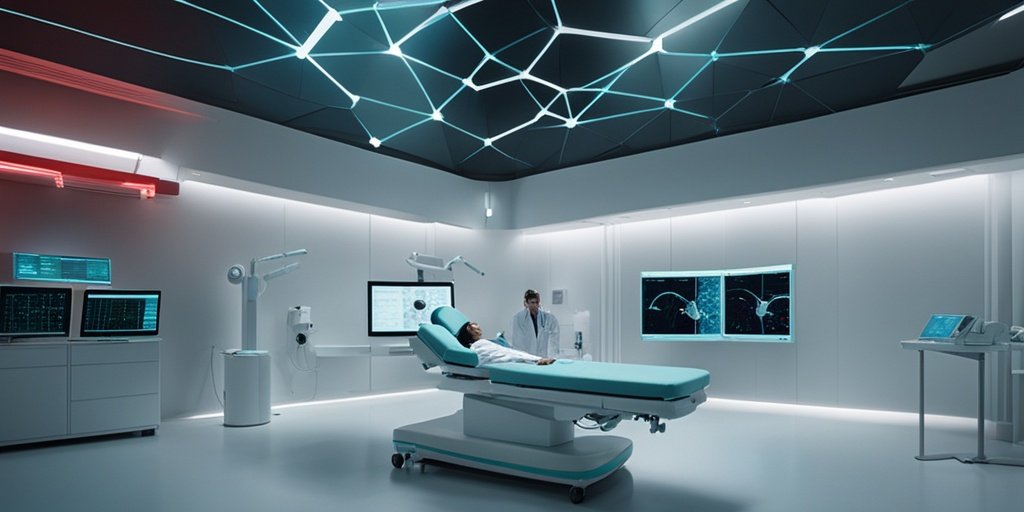⚡ Quick Summary
The article discusses a roadmap for the trustworthy implementation of artificial intelligence (AI) in cardiology, as proposed by the European Society of Cardiology. This initiative aims to enhance the integration of AI technologies in clinical practice while ensuring safety and efficacy.
🔍 Key Details
- 📊 Focus: Implementation of AI in cardiology
- 🧩 Authors: Asselbergs FW, Lüscher TF
- 📅 Publication Year: 2024
- 📖 Journal: European Heart Journal
- 🔗 DOI: 10.1093/eurheartj/ehae748
🔑 Key Takeaways
- 🤖 AI technologies have the potential to transform cardiology practices.
- 🔒 Trustworthiness is crucial for the successful adoption of AI in clinical settings.
- 🛠️ Roadmap outlines steps for integrating AI while ensuring patient safety.
- 🌍 European Society of Cardiology leads the initiative to standardize AI implementation.
- 📈 Focus on evidence-based practices to validate AI applications in cardiology.
- 👥 Collaboration among stakeholders is essential for effective AI integration.
- 📚 Continuous education for healthcare professionals on AI technologies is emphasized.
- 🔍 Ethical considerations are highlighted to address potential biases in AI algorithms.

📚 Background
The integration of artificial intelligence into healthcare, particularly in cardiology, presents both opportunities and challenges. As AI technologies evolve, there is a pressing need to establish frameworks that ensure their safe and effective use. The European Society of Cardiology recognizes this necessity and has initiated a roadmap to guide the trustworthy implementation of AI in clinical practice.
🗒️ Study
The roadmap proposed by the European Society of Cardiology serves as a comprehensive guide for healthcare professionals and institutions. It emphasizes the importance of evidence-based approaches in validating AI applications, ensuring that these technologies enhance patient care without compromising safety. The authors, Asselbergs FW and Lüscher TF, advocate for a collaborative effort among various stakeholders to facilitate this integration.
📈 Results
While specific results from the roadmap are not detailed in the article, the authors stress the importance of establishing trustworthy AI systems that can be reliably used in cardiology. This includes rigorous testing and validation processes to ensure that AI tools meet clinical standards and effectively support healthcare providers in their decision-making.
🌍 Impact and Implications
The implications of this roadmap are significant for the future of cardiology. By prioritizing trustworthiness and ethical considerations, the European Society of Cardiology aims to foster an environment where AI can be safely integrated into clinical workflows. This could lead to improved patient outcomes, enhanced diagnostic accuracy, and more personalized treatment plans.
🔮 Conclusion
The roadmap for the trustworthy implementation of AI in cardiology represents a crucial step towards integrating advanced technologies into healthcare. By focusing on safety, efficacy, and ethical considerations, the European Society of Cardiology is paving the way for a future where AI can significantly enhance cardiology practices. Continued research and collaboration will be essential to realize the full potential of AI in improving patient care.
💬 Your comments
What are your thoughts on the integration of AI in cardiology? Do you believe that establishing trustworthiness is the key to successful implementation? 💬 Share your insights in the comments below or connect with us on social media:
Trustworthy implementation of artificial intelligence in cardiology: a roadmap of the European Society of Cardiology.
Abstract
None
Author: [‘Asselbergs FW’, ‘Lüscher TF’]
Journal: Eur Heart J
Citation: Asselbergs FW and Lüscher TF. Trustworthy implementation of artificial intelligence in cardiology: a roadmap of the European Society of Cardiology. Trustworthy implementation of artificial intelligence in cardiology: a roadmap of the European Society of Cardiology. 2024; (unknown volume):(unknown pages). doi: 10.1093/eurheartj/ehae748